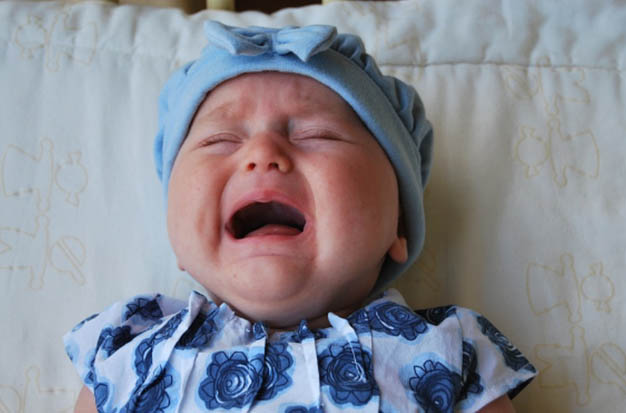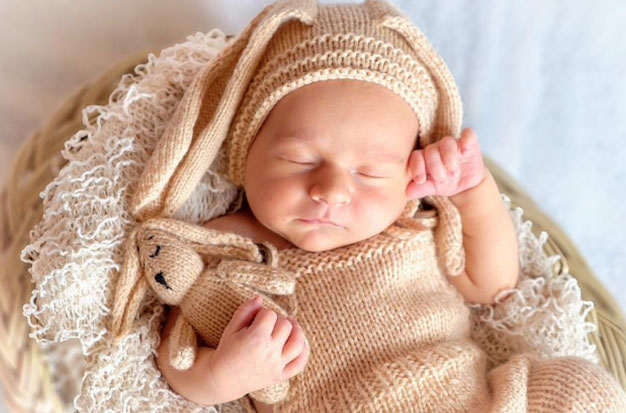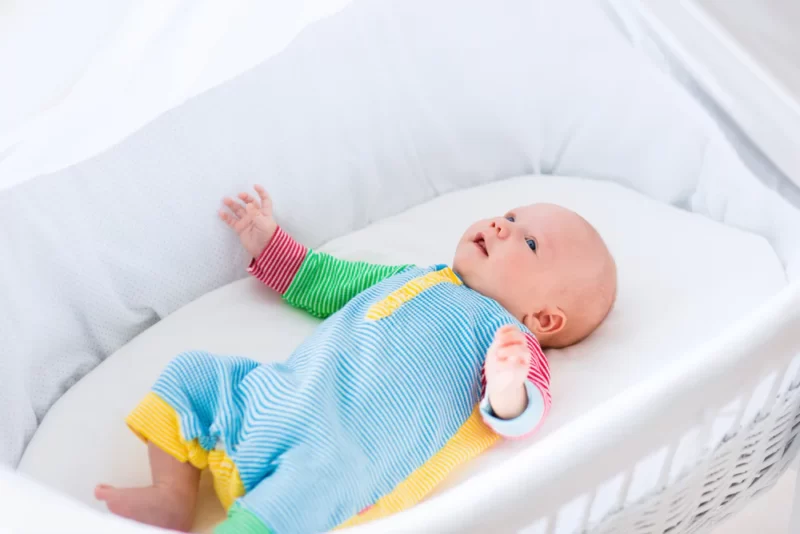Having a child is like having a living alarm clock. Both abrupt noises wake you up, but what happens when your baby starts waking up earlier and earlier? By the majority of adult standards, the typical baby wakes up “early.” If you can believe it, sometime between 6:00 and 7:00 a.m. is a biologically appropriate time for your child to wake up. If your infant wakes up bright-eyed and eager to play at 5:00, or worse, 3:00 a.m., you have to resolve early rising.
Why Does My Kid Get Up So Early?
It’s important to think about the potential causes before acting. Is your child being awakened by something, such as a neighbor leaving for work or the heating turning on?
Alternatively, you might think about how much sleep your child actually gets. Different children have different sleeping habits, and some require less sleep than others. Maybe you simply have a morning person. Sorry.
Children are more likely than adults to be early risers, or “larks,” as opposed to staying up late, or “owls.” Similarly to larks or owls, genes have an impact on our offspring. Does your relationship have an early bird?
Being Overtired
When a baby is overtired, he “surfaces” in the lighter sleep cycles of the early morning and realizes he’s awake – and cries out because he doesn’t feel great! He’s still tired. Contrary, a well-rested baby who gets to bed before he’s overtired and “wired”, would be able to self-soothe back down into sleep for a bit longer.
Teething
Early in the morning, a baby may be bothered by their teeth when they wake up in between light sleep cycles. Because there are no daytime distractions to draw their attention away from the discomfort that inflammation causes, inflammation builds up overnight. Just like a poopy diaper, being too cold, or having too much light in the room would, this discomfort prevents your child from falling back asleep.
Motor Development
When a baby first rolls, crawls or takes a few new steps, we are so happy! When they begin getting up at five in the morning to practice this new skill, the excitement begins to fade.
Have you ever had a morning where you awoke before your alarm and had a thought about something brand-new, exciting, and perhaps a little stressful that was happening in your life? Most of us probably recall being pregnant and waking up with thoughts of how our lives would change, and then being unable to go back to sleep. For our little movers, the circumstances are similar. Their new skill keeps them up at night because they are too preoccupied to fall back asleep, either thinking about it or wanting to practice it. This situation is frequently accompanied by a nighttime awakening lasting about an hour during which the baby may babble and play briefly but not cry. These changes are probably going to appear at 9 months, 18 months, and 22 months.
Habit
Because of teething or developmental changes, your baby may have started out with some early wake-ups; however, the waking up did not stop. After that, you are forced to wake up in the same manner. The body of the infant has grown accustomed to waking up at the same time every day and is unable to break the habit. Similar to how we wake up at 7 a.m. every day of the week, we do the same thing on the weekends.

Tips To Resolve Early Wake-ups
Try An Earlier Bedtime
When do you put your toddler to sleep? It may seem counterintuitive, but keeping your child up later may actually be the cause of his early rising. When you put your baby to bed overtired and worn out, it actually makes it more difficult for his small body to settle down and get good sleep. A bedtime between 7:00 and 8:00 p.m. is ideal, according to most parents. fits within their children’s ability to sleep well, and not wake too early.
Eliminate Hunger
Getting up early can indicate a hunger for some infants. You may want to attempt a dream feed if your baby is under 8 months of age, and you think that this could be the source of your early-rising issue. Simply put, this indicates that you would feed your infant at 11:00 p.m., being careful to be as discrete and quiet as possible, and immediately return him to the crib. It is hoped that he won’t even stir while taking a bottle or nursing.
Investigate Medical Conditions
You may be surprised to learn that a common cause of early rising is undiagnosed sleep apnea, along with allergies, the common cold, and Because these conditions obstruct the nasal passageways, GERD. Babies, and newborns in particular, exclusively breathe through their noses, which makes it difficult to breathe and, consequently, difficult to fall asleep. Please do not disregard the symptoms and call your pediatrician if you hear your child gasping or snoring while they are asleep.
Use The Shuffle
The Sleep Lady Shuffle can be used at nighttime as a last resort. Treat the early rising issue as you would normal night waking, with the exception that you will only be ‘shuffling’ until 6:30 a.m. If your child is still awake when you return, use a dramatic wake-up to help your child distinguish between sleep time and awake time. If your child is still awake when you return, try leaving the room for 30 to 60 seconds.
Naps Lead To Good Sleep
Another prevalent myth is that your child will sleep better at night if you prevent them from taking naps. In actuality, the reverse is true. Babies who take brief naps or who finish all of them early in the day frequently have trouble falling asleep at night. That can lead to early rising. Make sure you focus on their wakefulness windows instead. If at all possible, try to avoid going beyond them. Simply put, a baby or toddler who is overtired and wired prior to nap time will not sleep as well or for as long.
Make sure that a child who only takes one nap a day takes it after lunch so they aren’t overtired when it’s time for bed.
How Long Is This Going To Last?
Recall that getting up early is normal, natural, and only temporary. It can be startling, but it can also demonstrate how well-adjusted your baby is to its natural sleep cycle. This is wonderful news!
Moving beyond early rising takes time and consistency, just like with all other facets of coaching your baby’s sleep. Both will make early rising a thing of the past.
Download the Smart Sleep Coach by Pampers for more information on your baby’s sleep; it contains all the information you need in one simple-to-use, science-based app created by parents, for parents. You can handle everything because it has everything.
What Time Should My Baby Go To Bed?
You have likely been given the advice, “She will sleep in later if you put your baby down later.” Sadly, this is a widespread misconception that frequently backfires. The time your baby wakes up from her most recent nap and her age should be taken into consideration when setting her bedtime. As previously mentioned, your baby should be on a 12-hour cycle, so 6 am – 6 pm, 7 am – 7 pm, or 8 am – 8 pm are suggested bedtimes and awake windows. The time your child wakes up for the day may change if she goes to bed too early or too late.
To get to sleep and stay asleep, your baby needs to have a strong enough sleep pressure. Sleep pressure is essentially the accumulation of time while awake that results in fatigue. This is why it’s crucial to adhere to the proper awake times. Your child may have trouble falling asleep and may wake up in the middle of the night if she wakes up too late from her previous nap and is then put to bed without having built up enough sleep pressure.



